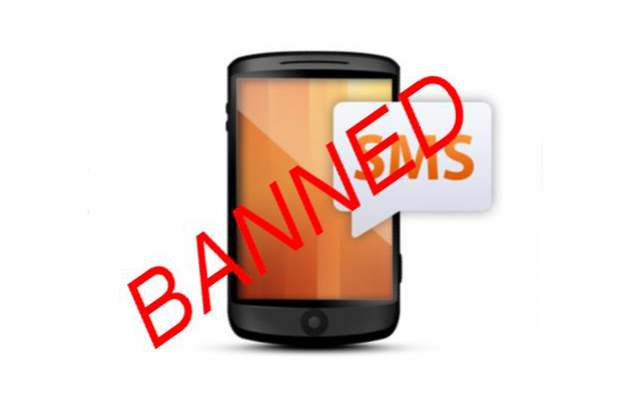The Government of India recently implemented a ban on the number of SMSes being sent by people; this was due to the speculative messages being sent around about the unrest targeting people originating from the North East in Bangalore. The traditional approach adopted by the Government of India during the recent issues that took place in Assam has turned out to be a big failure rather than having a positive or constructive effect on customers. What might have worked in the case of the Ayodhya verdict has clearly failed and in turn has created bigger problems for mobile phone customers throughout the country.
The issue
The Government of India had to take a strong step to set a limit of up to five SMSes per day per SIM last week. Along with that the MMS limit was also applied to each number, that too at 25 KB data per MMS so as to stop people form transmitting offensive images or videos. The ban was scheduled to start from August 17 for 15 days. The reason why the ban was implemented in the first place was to control hate messaging or additional problems that might arise due to it.
But rather than controlling messaging the government-laid ban became a source of problems for mobile phone customers and LED to mass confusion and discomfort. Most mobile phone users did not have a clear picture as to what all is included in the ban and what is excluded. For instance essential services such as banking, railways and other financial SMS based services were excluded but because of a lack of information people did not know this.
The exclusions
The ban was only effective for prepaid customers and the limit was also applicable to their numbers only. Meanwhile post paid numbers were excluded and enjoyed around 200 SMSes/day, which was much more than the limit set for pre paid numbers. There was no control over third party services and email messaging either, which the smartphone evolution has made quite popular.
This became an instant opportunity for third party IP-based SMS messaging providers like Way2SMS which unintentionally saw a surge of almost 25 per cent in the number of new registrations while the SMS ban was in effect. Not just SMS services, Nimbuzz, a popular internet based chat application, also saw similar growth of around 20 per cent increase in the number of application downloads in the past 15 days as compared to normal.
While it is just a singular case many other service providers such as Text Me which utilise a similar SMS gateway for transmitting messages throughout the country suffered major problems due to the SMS ban as they made use of an India-based SMS gateway system for transmitting messages.
Shortfalls
The ban certainly failed due to the restrictions and loop holes that were left in the ban policies. For instance, taking for granted that only prepaid numbers will spam was one of the bigger mistakes. The government took this for granted that since postpaid numbers have their addresses verified they would not send hate messages.
Secondly, third party services such as IM’s and IP SMS gateway services that were excluded from the ban would have certainly been used by various people who had access to the internet and Mobile Data as well.
Lack of education on the ban left people and even operators confused, and they in turn failed to tell people or inform them about the ban, thus causing more problems so that the government had to revisit its policies by raising the ban limit to 20 SMSes per day per number.
What could have been done?
Well, people themselves are educated and smarter, so rather than keeping users on a short leash the government could have used some constructive steps to positively use this as an opportunity rather than creating a 15-day nightmare for mobile users.
Firstly, rather than opting for a selective SMS ban the government could easily have adopted selective filtering of messages to take out messages with hate words rather than limiting people’s right to speech and expression.
Also, with the help of operators and other popular SMS services the government could have utilised it to their benefit by educating people rather than keeping them in the dark and thinking they have been controlling the situation.
Lastly, if the government had to go for a ban it could have opted for a blanket ban rather than just assuming the real source of the problem. For instance, by banning all the services equally, and that too in the affected states, so as to control the problem at hand more effectively.


